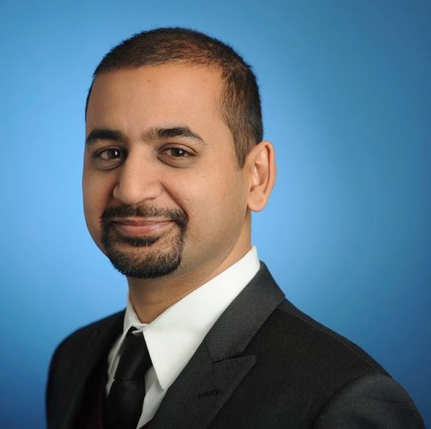
The end of the beginning: lessons from open government so far
Last week we announced the first News Challenge of 2013 will focus on Open Gov. To help get folks thinking, we asked a handful of people to share their hopes for open government. Below, Anil Dash, the co-founder of ThinkUp and Activate who has blogging at Dashes.com since 1999, shares his ideas.
For a movement that’s still so young, it’s clear that we’ve already been through a few generations of what can be called “open government” in the Internet era. There’s pre-history, with the simplest emails coming from the most primitive attempts at the end of the last century. There’s the broader awareness of open government, centered on campaigns and elections instead of efficiency and governance. There’s maturity, where people everywhere are talking about open government while still determining its true value. Now, perhaps, we’ve entered a period of stability, where the exuberance of the early days is traded for hard-earned pragmatism about what’s possible and what it takes to get there.
We’ve reached the end of the beginning of open government, and I’m excited because we’ve spoken too often of what we *could* or *would* do, instead of what we’re actually doing. I say this fully indicting myself as someone who’s participated. When the cutting edge of civic technology was the members of the Drupalocracy proclaiming proudly that they’d worked on Howard Dean’s campaign, too few of us pointed out that, well, the candidate lost. And he lost to a guy who lost. And almost nothing that technology enabled became policy or legislation in the years that followed.
Our community’s confidence about the organizing importance of social media was correct, but when social media truly unleashed its power in the policy world against SOPA and PIPA, it was the actions of private industry that actually galvanized the people; Wikipedia’s blackout was more effective than any open government tool at effectively capturing public attention. I can say that with authority – I was trying to make the open government tools we were hoping people might use instead.
I don’t say this to bash our community, but rather to highlight the normal growing pains of a passionate group of people who are still so often figuring out the basics of what works. Maybe we’ve had enough hackathons and contests that produce crime map mashups. Maybe we don’t need any more pothole reporting apps. Maybe our biggest civic issues can’t be addressed by apps that only run on costly, cutting-edge smartphones.
Maybe we had to go through learning all those lessons to get to the productive part.
I don’t mean to sound cynical or jaded; Indeed, I’m more excited about the potential of civic technology and open government than I’ve ever been. And I talk about the work that I’ve done, or that my good friends have done with the hope that those pushing forward can learn the lessons about what has and hasn’t worked and build from that.
We’ve learned a few clear things from our efforts in open government thus far
- It’s not about the technology: While technology is the enabler, changing the culture of agencies, institutions and society at large will always be more challenging than creating or deploying technology.
- Shipping beats wishing: Though it’s not about the technology fundamentally, there does need to be some set of tools for people to work from and iterate on, and often times it makes sense to start from work that others have already done, rather than hoping for optimal solutions.
- Things are “broken” for a reason: Everyone can point out countless examples of inefficiency, ineffectiveness or incompetence in civic institutions when looking for problems to fix. But many of the biggest challenges in Open Government come from insufficient empathy for the circumstances that caused those problems. Sometimes there’s a good reason that an agency or office is doing things that seem ridiculous.
- Goals like “transparency” are necessary but not sufficient: Of course we want visibility into the workings of our government, or access to data that we’ve paid for as taxpayers. But transparency is not a goal that most normal people think of in the course of a normal day. Projects that merely reveal that money corrupts policy or that some agencies waste funds don’t always galvanize change. In fact, they often reinforce people’s cynicism. It’s better we give citizens way to act on systemic problems, rather than describing those problems more vividly.
Finally, we need to tell our stories. So many of us have given years of our lives to open government but find it challenging to share succinct, understandable examples of success with those who aren’t in our community. That our efforts often take place outside the boundaries of government, and between the worlds of NGOs and non-profits and technology companies and open source communities, makes it difficult for a layperson to understand *who* we are.
But we’ve had lot of wins. We’ve made a big impact, and will make an even larger one in the future. That starts by looking at what we’ve done well and what we haven’t, and by spending more time listening to our fellow citizens about what they need from us to enable a better civic society.
Related: “Back to the future of self-governance: the promise of the Open Gov movement” by Mark Meckler on Knight Blog
Recent Content
-
Journalismarticle ·
-
Journalismarticle ·
-
Journalismarticle ·


